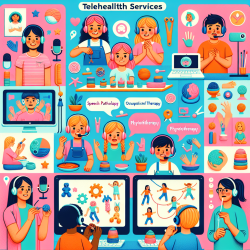Introduction
The COVID-19 pandemic has dramatically reshaped the landscape of education and therapy, with online platforms becoming a critical medium for delivering services. Among these platforms, Zoom emerged as a frontrunner, facilitating remote learning and therapy sessions. However, its rapid ascent was not without challenges, particularly concerning privacy and security. This blog explores how practitioners can leverage the insights from the research article "Why Zoom Is Not Doomed Yet: Privacy and Security Crisis Response in the COVID-19 Pandemic" to enhance their skills and ensure the safety and efficacy of their online sessions.
Understanding the Crisis and Response
The research by Chen and Zou (2023) provides a comprehensive analysis of Zoom's response to its privacy and security crisis during the pandemic. The study highlights how Zoom transformed a potential downfall into an opportunity for growth by addressing privacy concerns head-on. This transformation was achieved through strategic organizational crisis communication and the mobilization of a network of experts and stakeholders.
Key Takeaways for Practitioners
- Embrace Transparency: Practitioners should adopt a transparent approach in their communication with clients and stakeholders. Zoom's success in restoring trust was partly due to its open acknowledgment of issues and the steps it took to address them.
- Prioritize Privacy and Security: Just as Zoom integrated privacy and security into its core mission, practitioners should prioritize these aspects in their online therapy sessions. This includes using secure platforms, educating clients on privacy practices, and staying informed about the latest security updates.
- Continuous Education and Improvement: Zoom's commitment to user education and continuous improvement is a model for practitioners. Engaging in ongoing professional development and staying updated with technological advancements can enhance service delivery and client outcomes.
- Leverage Networks and Collaborations: Building a network of experts and collaborators can provide valuable insights and support. Practitioners can benefit from joining professional communities and engaging with peers to share knowledge and best practices.
Encouraging Further Research
While the research provides valuable insights, it also highlights the need for further exploration into organizational responses to privacy and security crises. Practitioners are encouraged to delve deeper into this area, examining how different platforms handle such challenges and the implications for online therapy.
Conclusion
The journey of Zoom during the pandemic offers a powerful lesson in turning challenges into opportunities. By adopting a data-driven approach and focusing on transparency, privacy, and continuous improvement, practitioners can enhance their online therapy services and create better outcomes for children. For those interested in exploring this topic further, I highly recommend reading the original research paper: Why Zoom Is Not Doomed Yet: Privacy and Security Crisis Response in the COVID-19 Pandemic.










